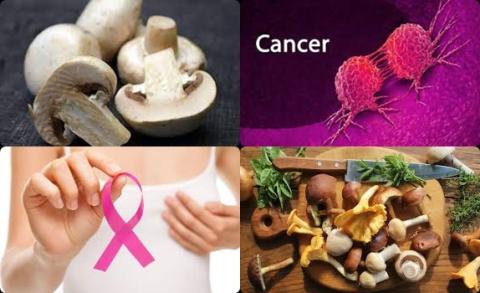
Objectives:
Does mushroom dietary intake reduce risk of cancer at any site?
Study design:
This review article included 11 case-control studies and 6 cohort studies.
Results and conclusions:
The investigators found higher mushroom consumption significantly reduced total cancer with 34% [pooled RR for the highest compared with the lowest consumption groups = 0.66, 95% CI = 0.55 to 0.78, n = 17].
The investigators found higher mushroom consumption significantly reduced breast cancer with 35% [pooled RR for the highest compared with the lowest consumption groups = 0.65, 95% CI = 0.52 to 0.81, n = 10].
The investigators found higher mushroom consumption significantly reduced nonbreast cancer with 20% [pooled RR for the highest compared with the lowest consumption groups = 0.80, 95% CI = 0.66 to 0.97, n = 13].
The investigators found there was evidence of a significant nonlinear dose-response association between mushroom consumption and the risk of total cancer [p-nonlinearity = 0.001, n = 7].
The investigators concluded higher mushroom consumption reduces risk of cancer, particularly breast cancer.
Original title:
Higher Mushroom Consumption Is Associated with Lower Risk of Cancer: A Systematic Review and Meta-Analysis of Observational Studies by Ba DM, Ssentongo P, […], Richie JP.
Link:
https://pubmed.ncbi.nlm.nih.gov/33724299/
Additional information of El Mondo:
Find more information/studies on vegetables consumption and breast cancer right here.